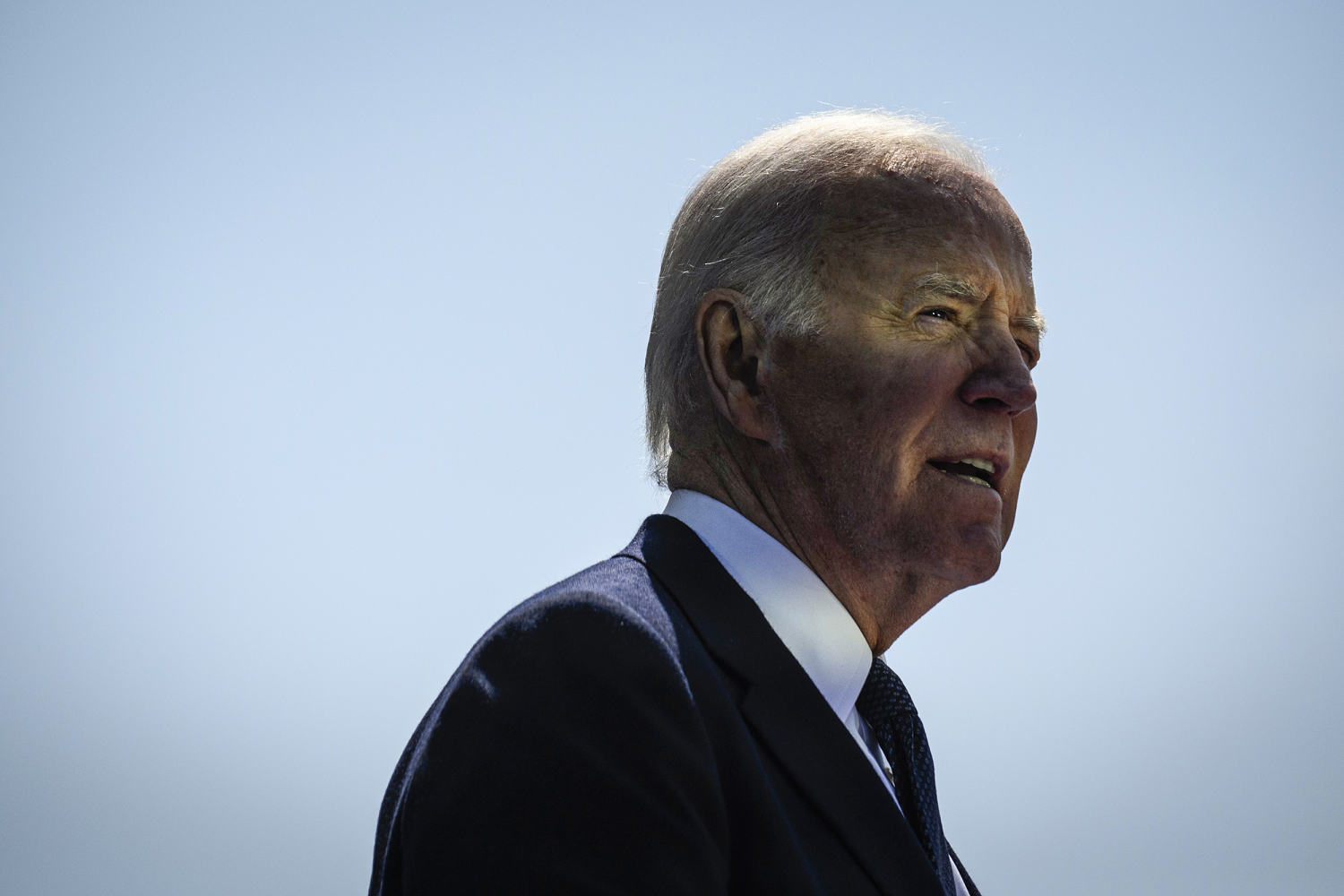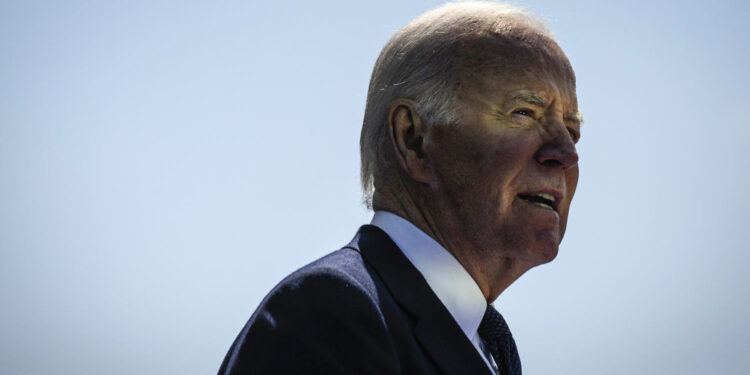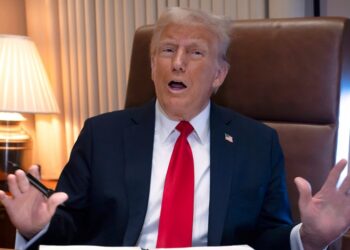
WASHINGTON — President Joe Biden announced Sunday that he will end his presidential re-election campaign, bringing an abrupt and humbling conclusion to his half-century-long political career and scrambling the race for the White House just four months before Election Day.
Biden, 81, could not reverse growing sentiment within his party that he was too frail to serve and destined to lose to Donald Trump in November.
Follow live updates on Biden’s presidential election withdrawal
“While it has been my intention to seek reelection, I believe it is in the best interest of my party and the country for me to stand down and to focus solely on fulfilling my duties as President for the remainder of my term,” Biden wrote in a letter posted on X. “I will speak to the Nation later this week in more detail about my decision.”
Biden thanked Vice President Kamala Harris for “being an extraordinary partner” but did not endorse her to be his replacement as the Democratic Party presidential nominee in his letter.
His withdrawal caps a singular national political career, bookended by Richard Nixon’s fall and Trump’s rise. He mounted four presidential bids. He spent 36 years in the U.S. Senate representing tiny Delaware. He rose to the chairmanships of the powerful Judiciary and Foreign Relations committees. And he served eight years as Barack Obama’s vice president.
Biden’s decision to exit the race less than a month before his party’s convention and a few months before voters head to the polls is unprecedented in the modern political era. The last sitting president to abandon a re-election bid was Lyndon Johnson, whose expansion of the Vietnam War in the 1960s split the Democratic Party. But Johnson’s announcement came in March 1968 — eight months before that election.
“We’re in uncharted waters,” said Barbara Perry, a presidential studies professor at the University of Virginia’s Miller Center. “No president has dropped out or died this close to the convention.”
Replacing Biden atop the Democratic ticket is likely to set off internal Democratic tremors as ambitious officials maneuver to become his successor. Factions have already formed around Harris and prominent governors, including Michigan’s Gretchen Whitmer and California’s Gavin Newsom.
Harris would seem to be the heir apparent. She broke a barrier as the first female vice president. A woman of color, she enjoys strong support among African Americans, a loyal piece of the Democratic coalition. Overall, though, Harris’ approval rating stood at only 32% in an NBC News poll released earlier this month.
“There’s no one you can name right now who is an obvious substitute,” Perry said. “That’s what makes this so uncertain and chaotic.”
The mechanics of putting a new name on ballots also gives rise to myriad legal questions. Republicans could work to throw obstacles in the nominee’s path by mounting legal challenges aimed at keeping that person off the ballot.
Questions about Biden’s capacities dogged him throughout his presidency, but peaked following his debate with Trump on June 27. Combined with his flagging poll numbers, his listless performance sparked a panic among his own party that he couldn’t win in November.
With 51 million people watching, Biden spoke in a raspy voice and often failed to complete thoughts or deliver a cogent explanation of why voters should choose him over Trump. He later attributed his poor performance to exhaustion and a cold. He implored the country not to let one bad night overshadow his accomplishments in office.
Unpersuaded, Democratic lawmakers began calling on him to step aside, a rebellion that started slowly but grew steadily in size and intensity. They appealed to Biden’s patriotism, arguing that if he sincerely believed Trump is a threat to democracy, he needed to put his country first and stand down.
Biden fought back. He held numerous calls and meetings with Democratic officials at all levels to shore up support inside the party — to no avail.
Looking to blunt concerns about his acuity, he gave interviews and held press conferences to prove to voters that he could still think on his feet. But the gaffes kept coming and his poll numbers remained stagnant.
In another bit of bad fortune and timing, Biden tested positive for Covid-19 on July 17, forcing him off the campaign trail.
For Democrats, Biden’s illness created an unwanted contrast. While Trump delivered a triumphal speech accepting the Republican nomination in Milwaukee on July 18, five days after surviving an assassination attempt, Biden was in self-isolation back home.
Biden’s departure is the latest in a series of jarring developments that has made the 2024 presidential race the most chaotic in living memory. Trump easily won the Republican presidential nomination despite splitting his time between the campaign trail and various courtrooms where he was a defendant in criminal and civil cases. In May, a jury in Manhattan convicted him on 34 felony counts related to hush money payments to a porn star.
Then, in short order, Trump rebounded. The Supreme Court issued a much-anticipated ruling on July 1 that immunized Trump from official conduct when he was president, impeding special counsel Jack Smith’s efforts to prosecute Trump for interfering in the 2020 election.
Trump nearly died on July 13 as he appeared at a rally in Butler, Pennsylvania. A gunman lying on a roof 130 yards away fired a bullet that grazed his ear. Trump dropped to the ground in self-defense. Then, his face smeared with blood, he rose and defiantly pumped his fist, yelling “Fight!”
Another fortuitous development came two days later, coinciding with the opening of the Republican convention in Milwaukee that certified Trump’s nomination. Federal judge Aileen Cannon in Florida dismissed a separate case brought by Smith alleging that Trump improperly retained classified documents that he took home with him when he left the White House in 2021. Cannon, who had been appointed by Trump, ruled that Smith’s appointment was illegal. Smith quickly appealed her ruling.
The rolling streak of news gave Trump a jolt of momentum, allowing Republicans to present an energized and unified at this month’s convention.
Biden seldom sparked any such enthusiasm. HIs primary campaign was mostly a coronation. He faced token opposition as party leaders cleared the field, betting that having beaten Trump once before, Biden was best positioned to do it again. But poll after poll confirmed that voters harbored doubts about him, believing he was too old and infirm to serve another term.
An AP-NORC survey released July 17 found that a whopping 65% of Democrats believed Biden should exit the race.
Pressed by his voters, abandoned by party leaders, Biden gave in.







